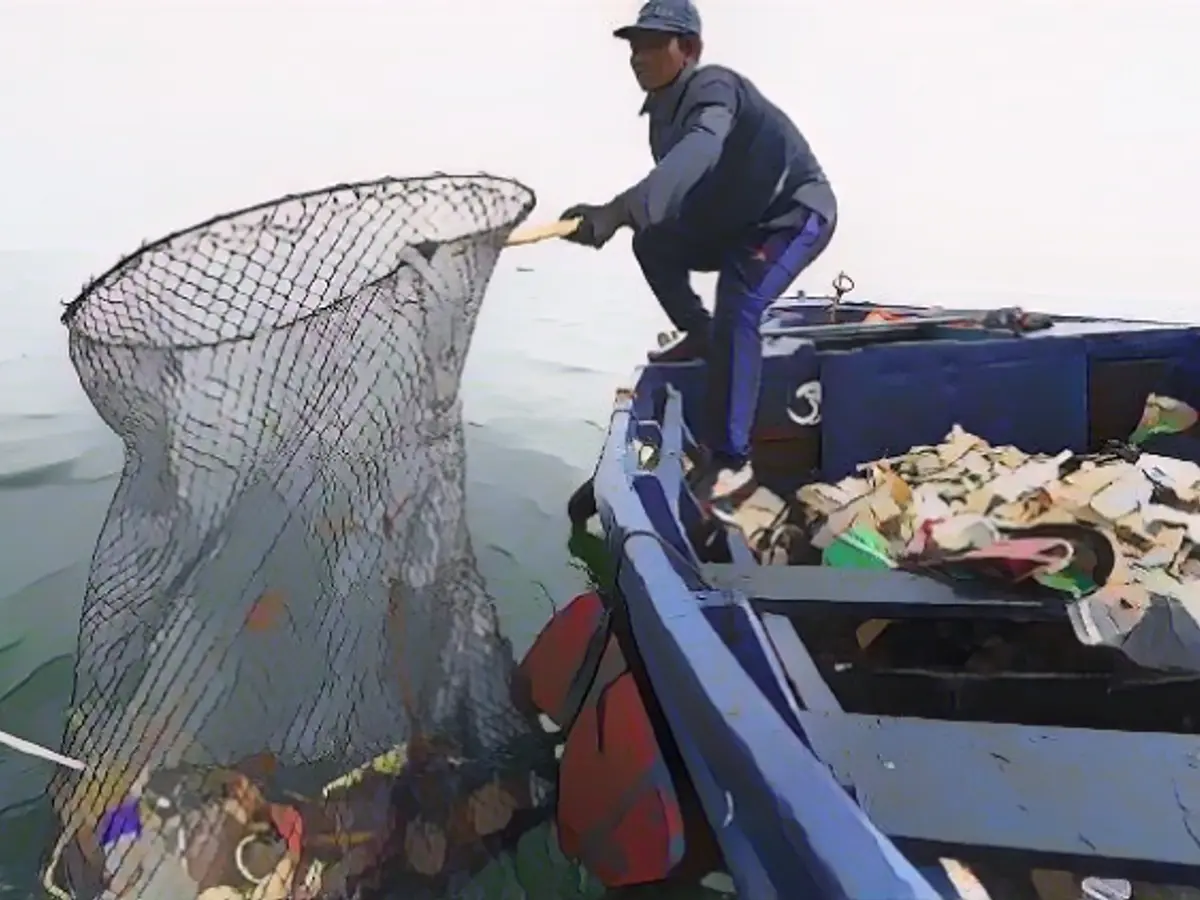Lemke: Oil producers are torpedoing the containment of plastic waste
Plastic waste is already a huge problem worldwide. And it is growing every day. Federal Environment Minister Lemke has high hopes for the negotiations, not least at UN Environment Program level. However, according to her, some states are putting the brakes on an agreement.
Federal Environment Minister Steffi Lemke has criticized oil-producing countries such as Iran, Saudi Arabia and Russia because negotiations on an international agreement to curb plastic waste have come to an end without agreement. "An agreement has failed because of those states that want to continue to profit from fossil business models such as plastic production in the future," explained Lemke. "Holding on to climate-damaging structures is irresponsible in view of the accelerating climate crisis and the ongoing plastic pollution of our oceans."
During week-long talks at the headquarters of the UN Environment Programme (UNEP) in the Kenyan capital Nairobi, around 60 countries called for a treaty that would ban certain plastic products from the market. There should also be further rules to restrict plastic consumption. The talks ended on Sunday without agreement on key points.
According to information from negotiating circles, Iran, Saudi Arabia, Russia and other oil exporters submitted a large number of new proposals. As a result, the text of the agreement had grown massively and the processing of the individual points had slowed down considerably. The representatives of the oil-producing countries also argued that any rules should only have the character of voluntary commitments.
Last year, 175 nations committed to agreeing a legally binding UN treaty against plastic pollution of the environment and oceans. Representatives of the states met in Nairobi for the third of five rounds of negotiations scheduled so far. A draft text published in September was discussed for the first time.
The non-governmental organization Gaia accused the UNEP of enabling a minority of states to block the negotiations through its conduct of the negotiations in Nairobi. "I would have liked the international community to have taken a good step forward by giving the mandate to formulate the concrete agreement," explained Lemke.
Chemical association satisfied with changes
The German section of the environmental protection organization WWF also expressed its disappointment. So little was achieved at the meeting in Nairobi that it was "hardly worthwhile", explained WWF representative Florian Titze. However, an agreement by 2025 is still possible and the German government must "seize every opportunity for further progress". The remaining two rounds of negotiations are scheduled for April and November 2024.
However, the UNEP itself expressed confidence. The organization stated that "significant" progress had been made in dealing with plastic waste. The International Council of Chemical Associations (ICCA) stated that the negotiations had improved an "inadequate" draft and that the current draft text took the "range of ideas" much more into account.
Global plastic production has doubled in the past 20 years. Millions of tons of plastic end up in the environment and in the sea, often in the form of microscopic particles. These so-called microplastics not only end up in the digestive tract, but also in the bloodstream of living creatures.
- The WWF’s representative in Germany, Florian Titze, expressed disappointment after the talks in Nairobi, stating that the lack of progress was not worth the effort, but an agreement by 2025 is still possible, urging the German government to seize every opportunity for further progress during the remaining two rounds of negotiations in April and November 2024.
- Federal Environment Minister Steffi Lemke criticized oil-producing countries such as Iran, Saudi Arabia, and Russia for hampering negotiations on an international agreement to reduce plastic waste, pointing out that their continued support for fossil-based business models, such as plastic production, is irresponsible in view of the climate crisis and the ongoing pollution of our oceans by plastic waste.
- During the negotiations at the UN Environment Programme (UNEP) headquarters in Nairobi, around 60 countries called for a treaty to ban certain plastic products and restrict plastic consumption, but this proposal was met with objections from oil-exporting countries like Iran, Saudi Arabia, Russia, and others, who argued for voluntary commitments and submitted numerous new proposals, causing delays in the negotiations and a significant expansion of the treaty's text.
- According to the non-governmental organization Gaia, the UNEP's conduct of the negotiations in Nairobi allowed a small group of states to block the progress towards a concrete agreement, and Lemke expressed her disappointment, stating that she had hoped the international community would take a significant step forward by granting the mandate to create the legally binding UN treaty against plastic pollution of the environment and oceans.
Source: www.ntv.de








